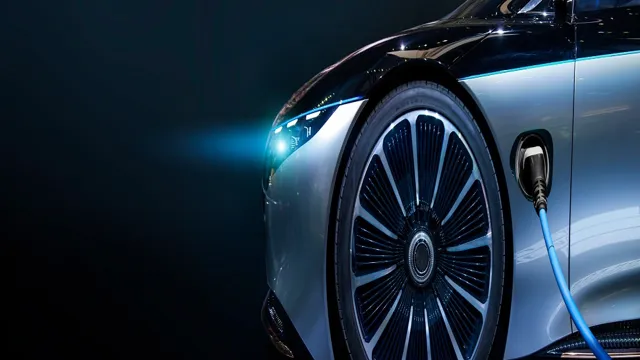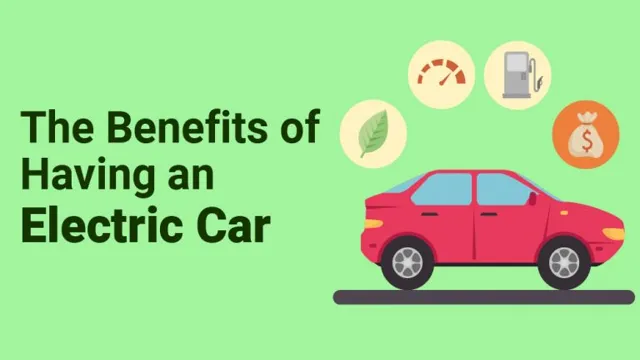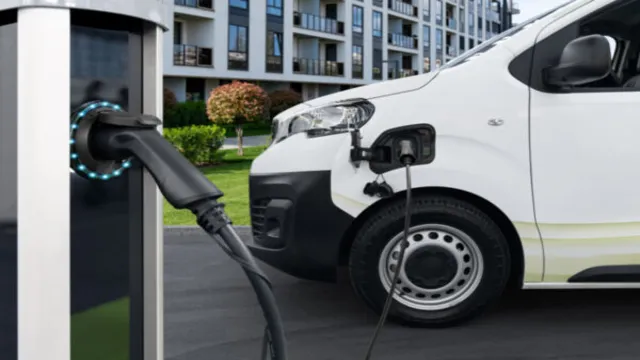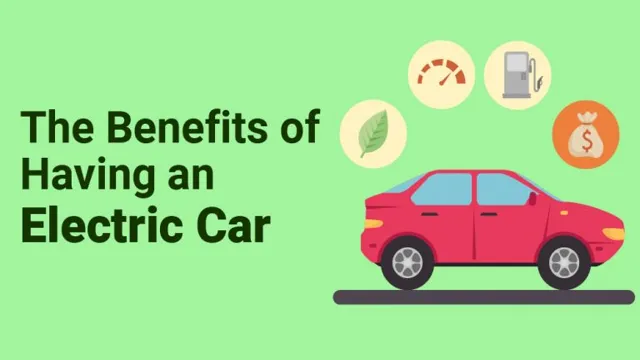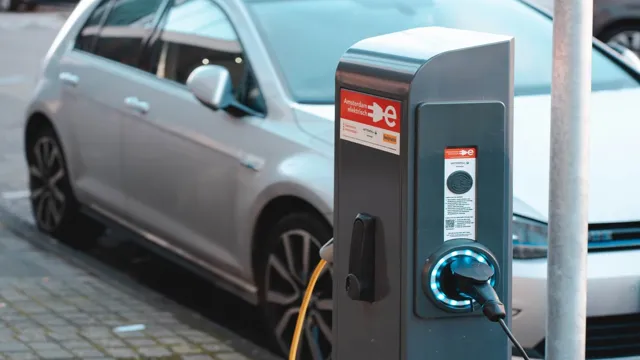Unleashing the Benefits of Electric Cars: How Fringe Benefits Tax can be Utilized
Have you been considering making the switch to an electric car? Not only are they great for the environment, but the government also offers a range of incentives to make it more financially attractive for everyone involved. However, before you jump headfirst into purchasing an electric vehicle, you need to be aware of the Fringe Benefits Tax (FBT). The FBT is a tax that businesses must pay on any benefits they provide to employees that aren’t part of their regular salary.
This can include things like company cars, healthcare plans, and even gym memberships. For electric cars, the FBT is calculated based on the value of the vehicle and how much it is used for personal purposes. But don’t let this deter you from investing in an electric car! There are ways to minimize the FBT and still take advantage of all the benefits of driving a more eco-friendly vehicle.
For example, you can ensure that the car is primarily used for work purposes, or you can pay for any personal use out of pocket. In the end, the benefits of switching to an electric car far outweigh any potential FBT costs. Not only will you be reducing your carbon footprint, but you’ll also save money on gas and maintenance costs in the long run.
And with government incentives and tax credits available, there’s never been a better time to make the switch.
What is Fringe Benefits Tax?
Fringe Benefits Tax (FBT) is a tax levied by the Australian Government on benefits given to employees in addition to their regular salary or wages. These extras could be in the form of complimentary meals, accommodation, or even a company car. It’s essential for companies to keep track of their FBT obligations to remain compliant with the law.
With the rise in popularity of electric cars, companies may be wondering how FBT applies to these vehicles. The ATO has specific guidelines on how FBT is calculated for electric cars, taking into account the car’s purchase price, its private use, and other factors. It’s essential for companies to understand the rules around FBT and electric cars to avoid any unintended tax implications.
By staying informed, companies can make informed decisions about providing benefits to their employees while complying with the law.
Explanation of FBT and how it affects electric cars
Fringe Benefits Tax, electric cars Fringe Benefits Tax, or FBT, is a tax that employers pay based on non-cash benefits they provide to their employees in addition to their salary or wages. This means that if a company provides their employees with a company car, they are required to pay FBT on that vehicle. With the rise in popularity of electric cars, you may wonder how the FBT applies to them.
The good news is that electric cars typically have a lower FBT rate compared to traditional petrol or diesel vehicles. This is because they are more efficient, emit less pollution, and have lower running costs. As a result, they are considered a more eco-friendly option and receive a tax break.
If you’re considering an electric car as a company vehicle, be sure to check with your employer about their FBT policies and rates. It may be a more cost-effective option for both you and your employer.
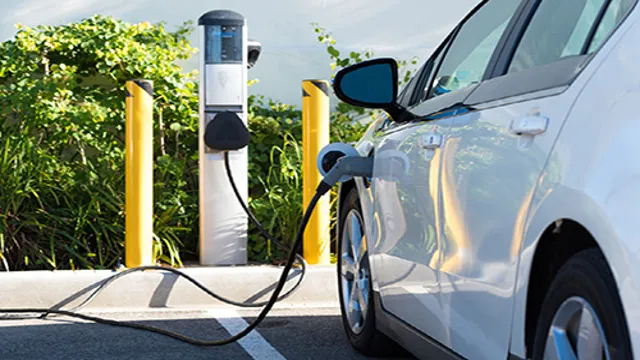
How to calculate FBT for electric cars
Fringe Benefits Tax (FBT) Fringe Benefits Tax (FBT) is a tax levied by the Australian government on employers who provide non-cash benefits to their employees in addition to their regular wages or salary. This tax is applied to benefits such as company-provided vehicles, entertainment, expense accounts, insurance, and more. If your company provides electric cars to your employees, then you will need to understand how to calculate FBT for these benefits.
The FBT rate for electric cars depends on the cost of the car, and the FBT liability is generally based on the car’s market value. However, certain concessions may apply to reduce the FBT liability for electric cars, such as the use of green energy or employee contributions towards the car’s running costs. So, it’s important to consult with a FBT specialist or tax professional to ensure that you’re correctly calculating the FBT liability for your company’s electric cars.
Electric Cars and FBT Exemptions
If you’re considering an electric car for your business, it’s essential to understand how FBT exemptions work. As of April 2021, the Australian Taxation Office (ATO) provides a range of FBT concessions for electric cars. This means that you could benefit from lower taxes if you opt for an electric vehicle over a petrol one.
To qualify for the exemption, the car must be wholly electric and must have an actual CO2 output of 0g/km. It also needs to be a new vehicle, with an estimated cost of less than $77,56 If you meet these requirements, you could be eligible for an exemption of up to 20% of the taxable value of the car.
So, not only is an electric car a great way to reduce your carbon footprint, but it could also be a tax-efficient choice for your business.
Overview of FBT exemptions for electric cars
Electric cars have gained significant popularity in recent years. One of the benefits of owning an electric car is that it can save business owners on Fringe Benefits Tax (FBT). The Australian Government provides FBT exemptions for electric vehicles as they aim to promote the use of low-emission vehicles.
FBT exemptions can consist of various benefits such as car parking, fuel, maintenance, and insurance. The FBT exemption can reduce operating costs for businesses, making electric cars a more attractive investment. By investing in an electric car, businesses can save on operating costs and promote environmental sustainability through reduced emissions.
Overall, the FBT exemption is an incentive for businesses to adopt eco-friendly transportation while also enjoying cost savings.
Benefits of choosing electric cars for FBT purposes
Choosing electric cars for FBT purposes can be a smart move for businesses looking to save money and reduce their environmental impact. Not only do electric cars qualify for FBT exemptions, but they also have significantly lower running costs than traditional petrol or diesel cars. This can translate to big savings for both the business and the employee.
Plus, electric cars produce zero emissions, helping to reduce the business’s carbon footprint and promote a more sustainable future. Not only that, but choosing an electric car can also help boost the company’s reputation as a socially responsible and environmentally friendly business – which can be a big selling point for customers and clients. So, if you’re considering upgrading your business’s fleet, it’s worth looking into the benefits of choosing electric cars for your FBT purposes.
Comparison of FBT for electric cars versus petrol cars
Electric cars are becoming extremely popular in today’s market, with many people switching over from petrol cars. One of the advantages of electric cars is that they are exempt from Fringe Benefits Tax (FBT). This means that electric car owners can save money on taxes that petrol car owners cannot.
When it comes to FBT, electric cars have a significant advantage because they emit no or very few harmful emissions, making them environmentally friendly. On the other hand, petrol cars emit CO2, polluting the environment and thus are not exempt from FBT. This tax exemption can be beneficial for those planning to buy or lease an electric car for their business, as it can help reduce their overall costs.
In summary, if you are considering purchasing a car for your business, it might be worth considering an electric car due to the FBT exemption and environmentally friendly nature.
Future of FBT and Electric Cars
Nowadays, there is an increasing trend towards electric cars due to their environmental friendliness and cost efficiency. However, this raises important questions for businesses regarding the Fringe Benefits Tax (FBT). Currently, FBT rules state that if an employer provides a car for their employees to use for private purposes, they are subject to FBT.
This includes electric vehicles. However, the Australian Government recently announced plans to change these rules, making electric cars exempt from FBT. This will certainly encourage more businesses to consider providing electric cars as part of their employee benefits package.
With this shift towards electric cars, there will be a need for continued education regarding FBT and its impact on businesses and their employees. It will also be important for businesses to consider the availability of charging infrastructure, as well as the potential cost savings and environmental benefits of electric cars. Overall, the future of FBT and electric cars in Australia is set to change, with opportunities for businesses to embrace new technologies and contribute to a more sustainable future.
Potential changes and updates to FBT regulations for electric cars
As the world continues to shift towards more sustainable energy sources, it’s no surprise that electric vehicles (EVs) have become increasingly popular. However, the current Fringe Benefits Tax (FBT) regulations have made it difficult for businesses to provide EVs to their employees. This has caused a reluctance amongst companies to invest in environmentally friendly vehicles.
There have been discussions of changes to the FBT framework to encourage the adoption of EVs and promote a more sustainable future. The proposed reforms include exempting EVs from the luxury car tax and lowering the depreciation threshold for EVs to encourage early adoption. These changes would make it more financially viable and appealing for businesses to invest in EVs and would help to reduce Australia’s carbon footprint.
Implications for businesses and employees
FBT, electric cars, businesses, employees The future of Fringe Benefits Tax (FBT) and electric cars is of pivotal importance to businesses and employees alike. With the increasing emphasis on sustainability, and the push towards reducing carbon emissions, electric cars have become an attractive option for businesses. However, the current FBT system discourages businesses from adopting electric cars, making them an unattractive option.
This is because FBT is calculated based on the cost of the car, and electric cars are generally more expensive than their petrol or diesel counterparts. The good news is that there have been discussions about reforming the FBT system, with proposals to introduce a single rate for all cars, regardless of their fuel type. This would mean that electric cars would no longer be penalized, and businesses would be encouraged to adopt them.
The implications of this move would be far-reaching, not only in terms of carbon emissions but also in terms of cost savings for businesses and increased job opportunities for employees. Overall, the future of FBT and electric cars is looking bright, and it is important for businesses and employees to keep an eye on developments in this area.
Conclusion
So there you have it, folks – fringe benefits tax and electric cars may seem like strange bedfellows, but they actually have a lot in common. Both represent forward-thinking solutions to modern problems. The FBT encourages employers to provide their employees with eco-friendly vehicles, which not only reduces emissions but also saves on tax.
And electric cars themselves are a fringe benefit – they are still something of a luxury item, but as they become more commonplace, they will undoubtedly make a positive impact on the environment. So let’s embrace the synergy between these two concepts, and look forward to a brighter and more sustainable future.”
FAQs
What is fringe benefits tax?
Fringe benefits tax is a tax on non-wage benefits provided by employers to employees, such as company cars, private health insurance, and gym memberships.
Are electric cars subject to fringe benefits tax?
Yes, electric cars are subject to fringe benefits tax if they are provided by an employer to an employee for personal use.
How is fringe benefits tax calculated for electric cars?
The fringe benefits tax for electric cars is calculated based on the car’s taxable value, which is equal to its cost price including GST, less any private use contributions made by the employee.
Is there any exemption from fringe benefits tax for electric cars?
Yes, electric cars with CO2 emissions of less than 50 g/km are exempt from fringe benefits tax until 31 March 2022. This exemption was introduced to encourage the use of low-emission vehicles.
